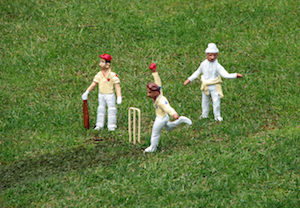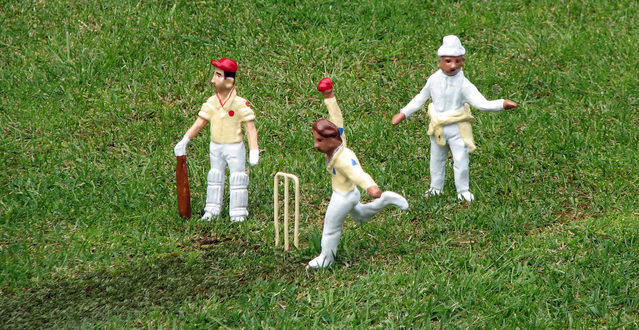Opinion: Are issues emerging in Australian cricket evidence that there is something rotten at the core of the game?
 It has long been known that there were problems during Michael Clarke’s era as captain of the side and just how significant these were have become evident after the release of his autobiography this month. Another to release his book has been left-arm fast bowler Mitchell Johnson. They have provided ample evidence of some of the fractured mojo in the once great side.
It has long been known that there were problems during Michael Clarke’s era as captain of the side and just how significant these were have become evident after the release of his autobiography this month. Another to release his book has been left-arm fast bowler Mitchell Johnson. They have provided ample evidence of some of the fractured mojo in the once great side.
At the same time as the inquiry into the death of Phil Hughes was held, all of the above was played out in the background of a one-day international series in South Africa in which Australia failed to win a game and their tour of Sri Lanka in which they lost the Test series 3-0. Sri Lanka had only won one Test against Australia before that clean sweep.
Now they are preparing for a Test series against South Africa at home and it has to be wondered just how Australia will cope if similar inability to succeed happens on home turf?
But perhaps the most interesting comment is one that was published on Fox Sports’ website late in October. It was by Brett Geeves, who was called on as an ODI replacement for the Australians on their 2009 tour of South Africa.
He describes, in not very pleasant terms the ‘culture’ that didn’t exist in the Australian set-up. The number of sports teams who go on about the legacy of their side and its place in their approach to the game is staggering, and this Australian side was no different. Remember all the mullarky they spout about reciting Under the Southern Cross out in the middle after a win – not that they would have had a lot of practice of late.
Forget all about the upper level clashes between Michael Hussey, Simon Katich and Clarke, this was about a new boy in the environment and how he was treated by senior players including Ricky Ponting and Clarke.
Geeves makes the point: “There is not one thing about professional cricket that is comparable to work in the real world. The pay is inflated, you accrue leave at a rate faster than Marion Jones after a drink of the special kool-aid, and this grants you five months holiday a year. You will also access the local links at least three times per week.
“There are few, if any, policies, guidelines, behavioural codes or punishments for displaying the coping mechanisms of a spoiled five-year-old who hasn’t learnt to share; unless, of course, you aren’t performing, or injured, then you can’t sneeze down wind of the coach without getting a written warning,” he said.
Geeves then described his introduction after the thrilling receipt of a phone call asking him to get to South Africa to play for Australia as quickly as possible. Travelling from Tasmania meant it was a 17-hour effort but there would be the delight at being welcomed on arrival.
But no. There was nothing or no-one at the airport. As it was a match day he took a taxi to the ground. But no, nothing had been left at the main gate for him to gain entry to the ground. Even with a Cricket Australia bag with his name on he wasn’t allowed in.
He went to another gate where an armed guard at last escorted him to the players’ changing rooms. Walking into the dressing room he was greeted with a ‘What are you doing here?’
As if that wasn’t enough, in his first appearance in the third of the ODIs, having sat out the first two, he broke his foot when hit by Morne Morkel – end of tour.
One team-mate, and the team masseur, checked on him before he caught the flight home without so much as a ‘goodbye and good luck’ from the captain, the manager or, as it turns out, the chief executive who was also on the tour.
But worst of all, there was the moment when he found himself on one side of a pedestrian crossing across an eight-lane road in Cape Town. On the other side of the road was Clarke with his girlfriend. Not another person in sight. They would pass in the middle of the road and Clarke couldn’t even manage to look at him or say a ‘Gidday’.
Geeves said, “I think they may have turned around when I burst out laughing, but I can’t be sure.”
By contrast, while interviewing the newest member (Rieko Ioane) of the All Blacks in Auckland this week, our chat was interrupted, just for a moment, by the captain of the side, Kieran Read, who was heading past for a television interview. Read shook Ioane’s hand, looked him in the eye and gave him a nod. Ioane’s reaction told him how much he appreciated the gesture.
It’s not hard to guess which approach is likely to resonate more with most people and it’s not that of the former Australian cricket captain. Better All Blacks have tried hard to be better people, and while there has been a little tarnish to that in recent weeks, the common decency hasn’t been forgotten.
By Lynn McConnell. Read more here.









Join the Discussion
Type out your comment here:
You must be logged in to post a comment.